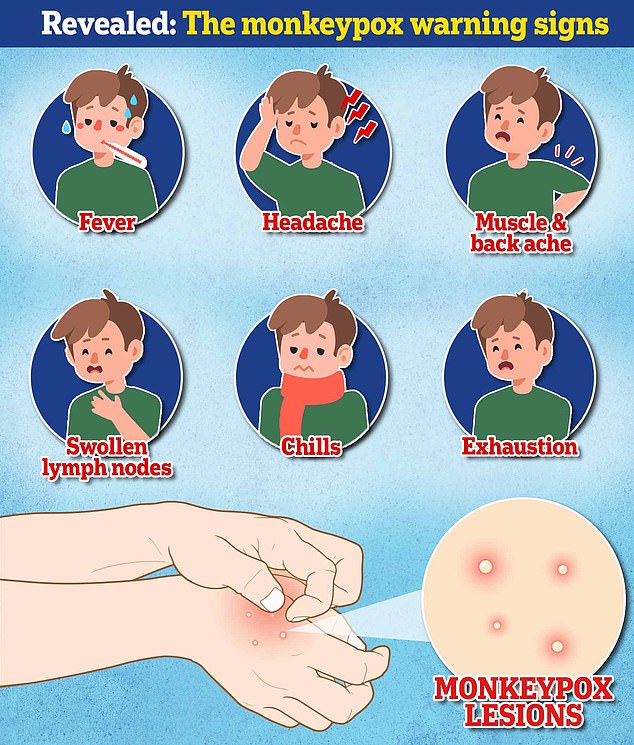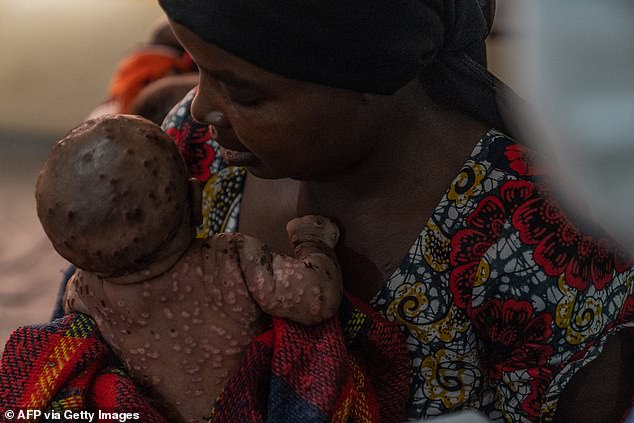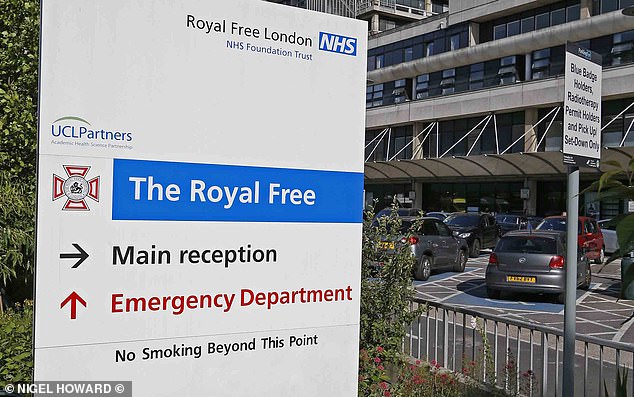A case of the new Clade 1b monkeypox has been detected in London, which has devastated several African countries, the first in Great Britain.
The unnamed patient was on vacation in an African country currently experiencing an outbreak earlier this month.
They then returned to the UK on October 24 before starting to fall ill with flu-like symptoms.
The patient then developed a rash and sought medical attention, at which point the case was flagged as potentially mpox by the NHS and the UK Health Security Agency (UKHSA).
Laboratory tests confirmed that the patient did indeed have the infection and is currently being treated by specialist infectious disease staff at the Royal Free Hospital in London.
No further details about the patient’s condition have been released.
UKHSA said they are currently tracing “fewer than 10” people who are believed to have been in close contact with the patient during the potential period he was infectious.
Currently, officials do not suspect the patient was contagious on the return flight from the yet-named African country where they contracted the disease.
It is currently unknown how the patient contracted mpox, although skin-to-skin contact is suspected.
The patient is currently being treated by infectious disease staff at the Royal Free Hospital in London.

UKHSA said they are currently in talks with their counterparts in the African nation for contact tracing purposes there and are therefore not revealing which exact nation it is.
Officials say they still consider the threat Clade 1b poses to the public to be low.
Professor Susan Hopkins, UKHSA chief medical adviser, said: “Thanks to our surveillance we have been able to detect this virus. This is the first time we have detected this clade of mpox in the UK, although other cases have been confirmed overseas.
‘The risk to the UK population remains low and we are working quickly to trace close contacts and reduce the risk of any potential spread. In accordance with established protocols, investigations are being carried out to find out how the individual acquired the infection and to evaluate if there are more associated cases.’
Health and Social Care Secretary Wes Streeting said: “I am extremely grateful to the healthcare professionals who are doing incredible work to support and care for the affected patient.
‘The overall risk to the UK population currently remains low and the government is working alongside the UKHSA and the NHS to protect the public and prevent transmission.
‘This includes securing vaccines and equipping healthcare professionals with the guidance and tools they need to respond to cases safely.
“We are also working with our international partners to help affected countries prevent new outbreaks.”
Steve Russell, NHS national director of vaccination and screening, said: “The NHS is fully prepared to respond to the first confirmed case of this type of mpox.
‘Since mpox became present in England, local services have done everything they can to vaccinate those eligible, and tens of thousands in priority groups have already come forward to protect themselves, and although the risk of contracting mpox in the UK remains low, If necessary, the NHS has plans to rapidly expand the vaccine rollout in line with supply.
Clade 1b has spread across central Africa killing hundreds, especially in countries like the Democratic Republic of the Congo, since the outbreak began.
Cases have also been detected in Burundi, Rwanda, Uganda, Kenya and in European countries such as Sweden, India and Germany.

A woman cares for her baby who suffers from a severe form of mpox in eastern Democratic Republic of the Congo
It is considered much deadlier than the clade 2 strain that spread around the world in 2022 and mainly affected gay and bisexual men.
Clade 1b is estimated to kill approximately one in 20 adults, but the mortality rate increases to one in 10 in children.
In comparison, clade 2 only killed about one in every 500 people who contracted it.
Common symptoms of mpox include a skin rash or pus-filled lesions that can last two to four weeks.
The infection can be transmitted through close person-to-person contact with someone who has the infection or with infected animals and by contact with contaminated materials.
Anyone who has symptoms should continue to avoid contact with others as long as symptoms persist.
It can also cause fever, headaches, muscle aches, back pain, lack of energy, and swollen lymph nodes.
UKHSA also said they are securing more supplies of mpox vaccines as part of the wider vaccine rollout.

